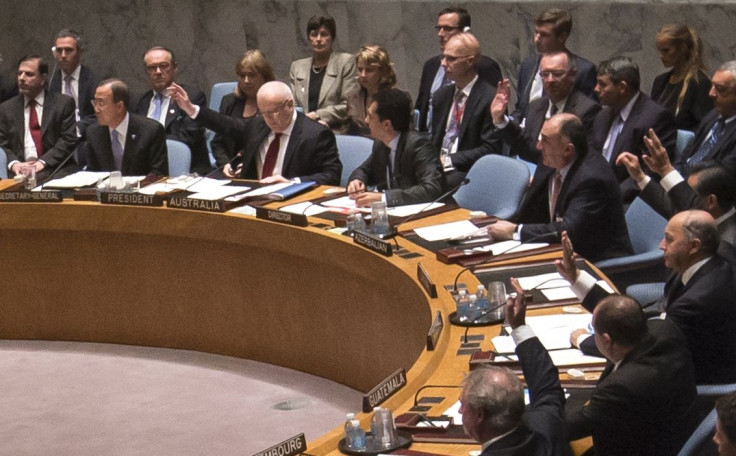United Nations Security Council Unanimously Adopts Resolution To Destroy Syrian Chemical Weapons Stockpile

The United Nations Security Council unanimously adopted on Friday a legally binding resolution to destroy Syria’s chemical weapons, ending more than two years of impasse in the Council over joint action against Syria.
The resolution prohibits the Syrian government and other Syrian groups from using, developing, producing, acquiring, stockpiling or retaining chemical weapons, or transferring them without authorization to other nations or groups, and endorses imposing Chapter VII measures in the event of noncompliance by Syrian President Bashar Assad’s government.
Syria is also required to allow unfettered access for international chemical weapons inspectors, who will start inspections by Oct. 1. The resolution authorized U.N. member nations to acquire, transfer and destroy chemical weapons identified by the Organization for the Prohibition of Chemical Weapons, OPCW, using measures consistent with the U.N. chemical weapons convention.
“Today’s historic resolution is the first hopeful news on Syria in a long time,” Secretary-General Ban Ki-moon told the 15-member Council, following the adoption. “Tonight, the international community has delivered.”
“A red light for one form of weapons does not mean a green light for others. This is not a license to kill with conventional weapons. All the violence must end. All the guns must fall silent,” Ban said, according to a statement from the U.N.
Secretary of State John Kerry said that that Syrian regime bore the responsibility of meeting the terms of the resolution, while Russia’s Foreign Minister Sergei Lavrov said all nations -- especially Syria’s neighbors, who need to alert on moves by militant groups to secure the Syrian chemical weapons -- shared the responsibility for implementing the resolution.
U.N. officials in Syria will launch an investigation into seven more cases of alleged chemical and biological weapons use, including three incidents which took place around the capital Damascus after the chemical attack on Aug. 21, which triggered belligerent rhetoric against Syria in the West.
The U.N. said on Friday that weapons inspectors returned to Syria on Wednesday and is expected to submit a report by the end of October.
© Copyright IBTimes 2024. All rights reserved.












